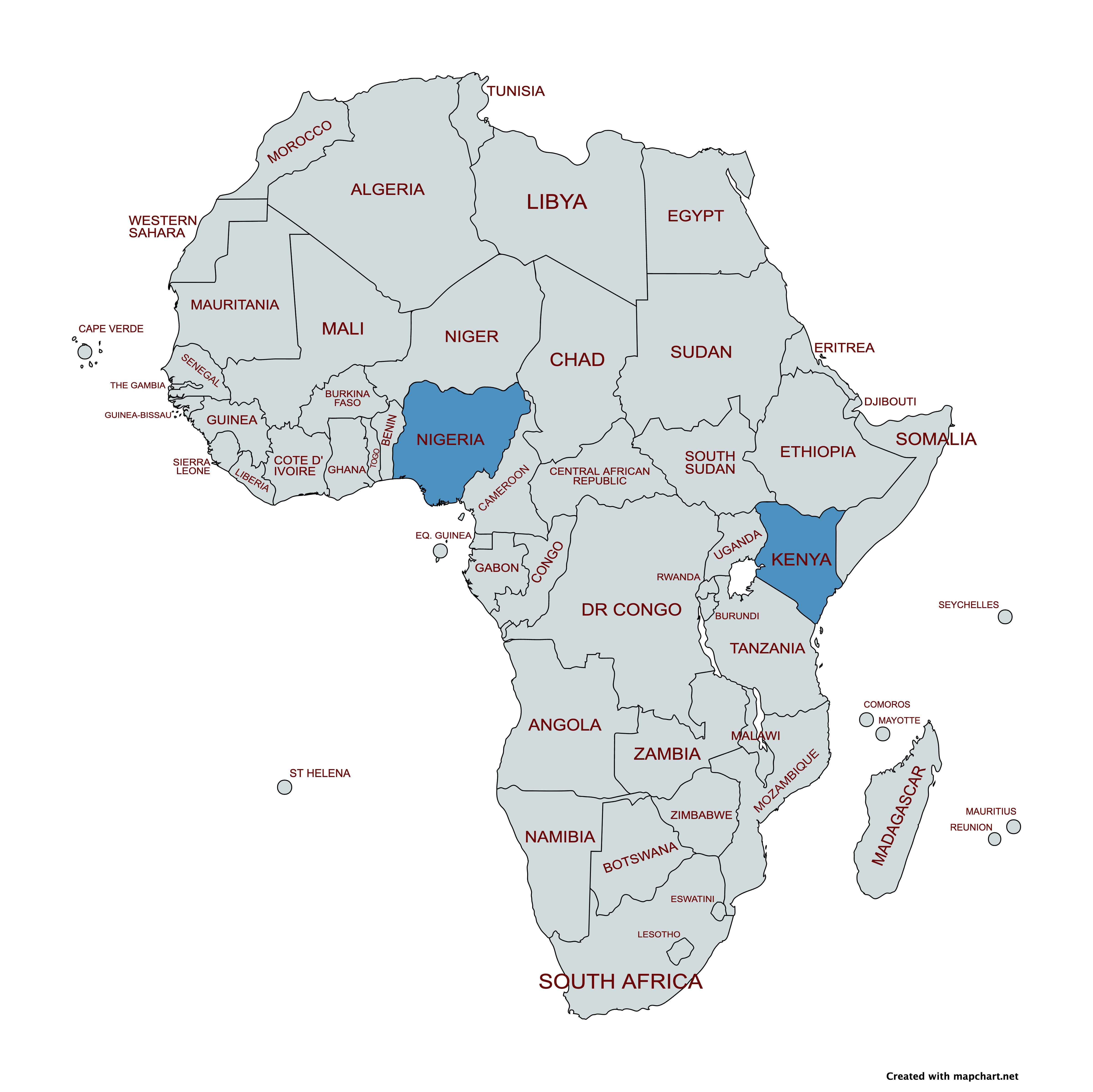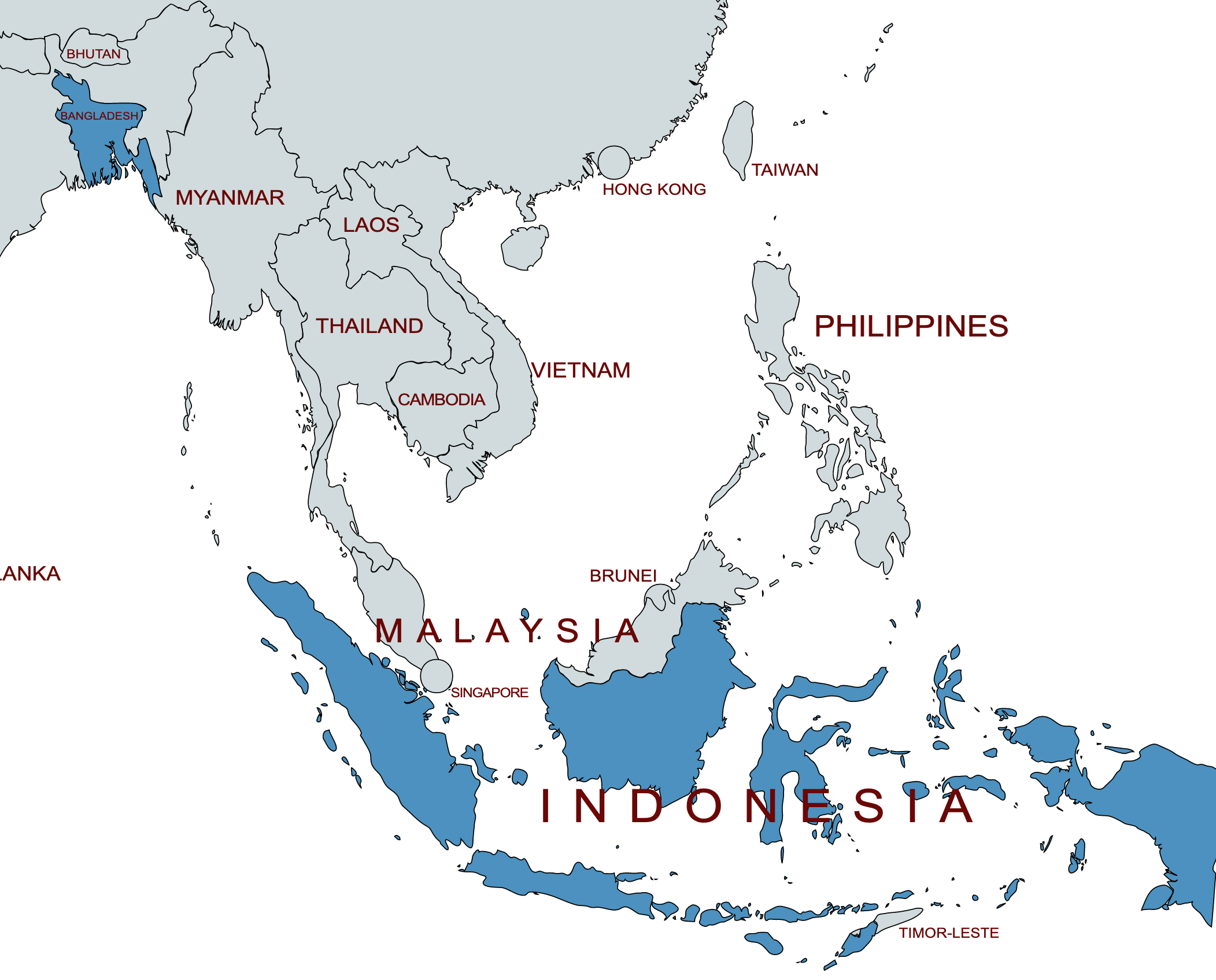About the Project
The Feed the Future Global Biotech Potato Partnership is a five-year project managed by Michigan State University that focuses on the commercialization of late blight disease resistant potatoes in farmer-preferred varieties in Bangladesh, Indonesia, Kenya, and Nigeria.
Potato is the third most important food crop worldwide. World potato production has increased with growth primarily in developing countries. There will be increasing demand for potato due to population growth, changes in consumption habits, and regional marketing. Despite increased potato production, yields in Africa and Asia have not reached their full potential. This is mainly due to a combination of inadequate supplies of high-quality seed, pests and diseases and smallholders’ limited awareness of good crop management practices. Late blight (LB) and bacterial wilt are the most prominent, ubiquitous, and quickly expanding diseases of potato.
Worldwide, annual potato crop losses of between 15 and 30% are attributed to LB disease and result in significant global cost equaling $6.7B. In developing countries, including those in South East Asia and Africa, potato production and storage length are greatly limited by the effects of LB disease. An entire field can be destroyed within just a few weeks. Genetic engineering using multiple late blight resistant genes, referred here to as a 3 R-gene stack, provides durable resistance to the disease for existing popular varieties. Research indicates that the 3 R-gene late blight resistant (LBR) potato will directly increase crop yields and cut reliance on fungicides by up to 90%, greatly reducing human and environmental health risks while providing a resilient solution to the disease.
The project represents a distinctive contribution to global agricultural biotechnology efforts and addresses U.S. Government Global Food Security Strategy (GFSS) overarching objectives. The LBR potato achieves inclusive and sustainable agriculture-led growth by improving the lives of smallholder farmers, both women and men, through improved crop yields, reduced fungicide input costs, and reduced exposure to harmful chemicals. The project strengthens resilience among people and systems through improved crop management from seed to post-harvest storage. In addition, the health benefits of the LBR potato contribute to a well-nourished population, especially among women and children. The targeted preferred potatoes are table varieties, a key ingredient in economic daily family meal plans.
Where we work


The partnership
The Global Biotech Potato Partnership is a collaboration between MSU, the International Potato Center (CIP), the University of Idaho, African Agricultural Technology Foundation (AATF), and partner country National Agricultural Research Systems; Bangladesh Agricultural Research Institute (BARI), National Research and Innovation Agency Indonesia (BRIN), Kenya Agriculture and Livestock Research Organization (KALRO), and Nigeria’s National Root Crops Research Institute (NRCRI). Building the capacity of the National Agriculture Research Systems, or NARS, to conduct this research in the four countries is also a primary goal of the project. The project also works with local partner country organizations such as Farming Future Bangladesh.




